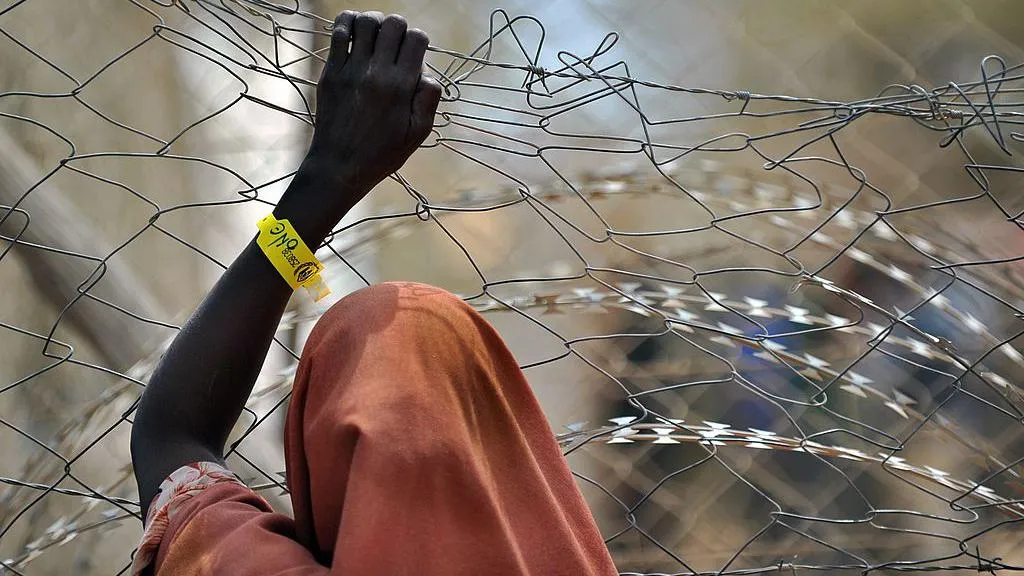‘We live in fear’ – forced expulsions taint Kenya’s safe haven image
4 min read
Over 3,000 refugees are currently seeking protection for different reasons in Kenya, a rights group says. BBC

Over 3,000 refugees are currently seeking protection for different reasons in Kenya, a rights group says. BBC
Kenya, once seen as a safe haven for refugees fleeing war and political persecution, is increasingly becoming a hostile place for those seeking protection. In recent months, there have been growing concerns about the safety of refugees in the country, particularly after a series of high-profile deportations and abductions involving foreign nationals, many of whom had been recognized as refugees by the United Nations.
One of the most alarming incidents occurred last month, when masked men abducted four Turkish refugees in Nairobi, the Kenyan capital. The men, who were part of the Gulen movement—an organization accused by the Turkish government of plotting a failed coup in 2016—had sought refuge in Kenya. According to Kenyan authorities, the Turkish government requested their deportation on charges of treason. These events have sparked criticism from human rights groups, who accuse Kenya of violating the principle of “non-refoulement,” a core tenet of international refugee law that prohibits the return of individuals to countries where they face a real threat of persecution.
This crackdown on refugees has tarnished Kenya’s international image, especially as the U.S. and the UK raised the issue of forced deportations with President William Ruto during recent diplomatic talks. Despite the growing pressure, Kenya’s government has defended its actions, claiming that it faces a delicate balancing act between protecting its national interests and upholding international obligations. Senior foreign ministry official Korir Sing’oei emphasized that the government must navigate complex diplomatic considerations, especially in its relationship with Turkey, with which Kenya signed a military cooperation agreement in July.
While Kenya has long been regarded as a stable and relatively safe destination for refugees from conflict zones like South Sudan, Somalia, and Eritrea, recent events have raised serious concerns about the safety of asylum seekers. According to the UN, Kenya is home to over 800,000 refugees, but rights groups argue that the situation has worsened in recent years, with reports of refugees being targeted by Kenyan authorities or foreign governments.
The country’s police forces have been accused of colluding with foreign intelligence agencies to apprehend individuals seen as political threats. In one notorious case, 36 Ugandan opposition supporters were abducted by Ugandan security operatives while in Kenya for a training course. The victims were deported to Uganda without due process, and the Kenyan government faced criticism for not protecting their rights. Other cases include the disappearance of Rwandan human rights defender Yusuf Ahmed Gasana, who was abducted in Nairobi in May 2023 and has not been seen since.
These incidents reflect a broader trend in which refugees are increasingly at risk of being extradited or forcibly returned to their home countries, where they may face detention, torture, or even death. This has left many refugees in Kenya living in constant fear. One Rwandan refugee, who has lived in Kenya for over a decade, told the BBC that he no longer feels safe. “I live in constant fear here. Going back home is not an option for me, but I’m afraid because the people I’m running from could find me here,” he said. His situation is not unique—many refugees are now turning to organizations like the Refugee Consortium of Kenya (RCK) for protection and legal support, as they fear being deported or arrested.

The case of the four Turkish refugees has particularly drawn attention. Despite being recognized by the UN as refugees, they were abducted and deported without any proper legal process. These men were part of the Gulen movement, a religious and political group that has faced heavy persecution from the Turkish government since the 2016 coup attempt. Some have speculated that their deportation was linked to the death of Fethullah Gulen, the movement’s leader, in August 2023. With the death of Gulen, Turkey may have intensified its efforts to target his followers globally, using countries like Kenya to crack down on dissent.
The deportation of these refugees has drawn condemnation from several quarters. Bishop Willybard Kitogho Lagho, chair of the Interreligious Council of Kenya, described the four deported men as “peace-loving people” involved in humanitarian work, underscoring the human rights violations involved. Local analysts have also expressed disappointment, arguing that Kenya should have handed the refugees over to the UN for resettlement rather than bowing to foreign pressure.
Kenya’s approach to handling refugees has shifted in a way that threatens its long-standing reputation as a safe haven. The growing concern is that the government, under the pressure of international diplomacy and its desire to maintain good relations with countries like Turkey, is disregarding its obligations to refugees. As a result, the safety of thousands of people who have fled war and persecution is increasingly in jeopardy.
For many refugees living in Kenya, the future is uncertain. The fear of arrest, deportation, or even abduction is a constant reality. The situation is particularly precarious for those who are politically active or critical of their home governments. As the country faces growing pressure from both domestic and international actors, it remains to be seen whether Kenya will return to its role as a refuge for the persecuted or whether it will continue to compromise its humanitarian principles for political and diplomatic gain.